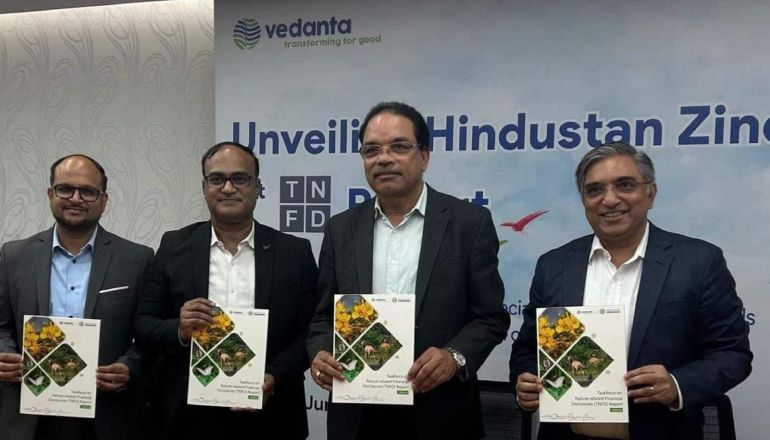Hindustan Zinc Limited, a Vedanta Group company, has released its Task Force on Nature Related Financial Disclosures (TNFD) report. The company is among the first in the metals & mining sector in India to adopt the TNFD framework.
The report identifies environmental risks and aids the company in developing sustainable strategies to tackle climate change.
Hindustan Zinc is prioritizing environmental impact assessment, identifying action areas, and setting science-based targets to mitigate pressures on freshwater and land during the initial pilot phase.
The company has outlined nature-related dependencies, impacts, risks, and opportunities. The assessment enables a detailed evaluation of the company’s direct operations and upstream critical supply chain based on nature.
“The launch of the country’s first TNFD report underscores our commitment to responsible nature conservation. We are actively pursuing decarbonization and environment conservation efforts, as evidenced by our nature protection initiatives. By integrating sustainability across our operations, we aim to create long-term value for stakeholders and contribute to a healthier planet,” Arun Misra, CEO, Hindustan Zinc said.
“We have embarked upon a mission to embrace a Nature Positive future. Our TNFD report reflects our commitment to assess, disclose, and mitigate nature-related risks, aligning seamlessly with global policy goals outlined in the Target 15 of Kunming-Montreal Global Biodiversity Framework,” said Priya Agarwal Hebbar, Chairperson, Hindustan Zinc.
It must be noted that Hindustan Zinc Limited is among 17 global participants in the Initial SBTN Target Validation Pilot and a member of the CII’s India Business & Biodiversity Initiative.

